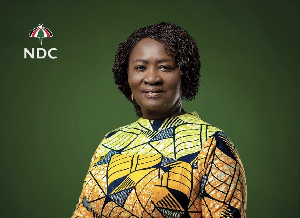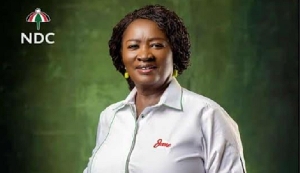 File photo: While some child marriages seal friendships, others fulfill traditional obligations
File photo: While some child marriages seal friendships, others fulfill traditional obligations
Her only option was to attempt suicide after a failed escape from her family home where she was being betrothed age sixteen (16).
“I took a substance known as condemn to end my life in 2018 but was not successful. This was after a failed attempt to escape from home”, said Ayisha Latif.
Child marriage comes in various forms. While some are given out to seal friendship or fulfill a traditional obligation, others are betrothed.
The practice of betrothal or exchange marriage is common among some ethnic groups in northern Ghana. It is a traditional obligation.
The age-long tradition allows a man to exchange his sister for a woman in another family; that is if the man finds that woman worthy of marriage. This was what got Ayisha contemplating suicide.
“It all started when my elder brother exchanged one of my supposed husband’s sister with us. At age 16 and being the eldest daughter among three girls, my parents took the view I was the eligible candidate for the exchange which I opposed.
“I tried to escape on two occasions but I was caught so my last option was to commit suicide. I drank a weedicide and fell unconscious. After some hours I regained consciousness and found myself on a hospital bed at the Salaga government hospital”, a distraught Ayisha narrated.
Determined to avoid the forced marriage, Ayisha attempted for the third time to escape from home after she was discharged from the hospital.
She met Maria Karim who took her in as a daughter after hearing my story.
The United Nations Convention on the Rights of the Child defines a child as any person under the age of 18.
The four core principles of the Convention are non-discrimination; devotion to the best interests of the child; the right to life, survival and development; and respect for the views of the child.
Globally, 650 million girls and women were married before their 18th birthday according to United Nations Children Emergency Fund (UNICEF).
In Ghana, a lower-middle-income country, child marriage is prohibited under the constitution and by law. According to the Ghanaian constitution of 1992, any person under the age of 18 is a child and can therefore not marry or be married off. This is underscored by the 1998 Children’s Act, which sets the legal age of marriage at 18 for both boys and girls.
Despite this legal framework, the prevalence of child marriage in Ghana remains high. The Ghana demographic and health survey 2014 Rockville reveals, one in five girls marries before her 18th birthday (20.7%) and one in 20 girls (4.9%) marries before her 15th birthday. Although child marriage can occur among males as well, the prevalence is much lower: only 2.3% of men aged 20 to 24 years are married by age 18 in Ghana.
Research work by Nour NM (2009) on Child marriage reveals some negative health consequences of child marriage to include poorer maternal and reproductive health, increased risk of HIV and other sexually transmitted infections, intimate partner violence and maternal mortality.
Again, early childbearing increases risks to women’s health, as maternal disorders1 including complications during pregnancy and child birth are the leading cause of death among women aged 20–24 years globally and the second leading cause among adolescent girls aged 15 to 19 years .
Like Ayisha, 34 percent of girls in the Savannah enclave go through this forced marriage according to a World Vision report.
The Executive Director of the Savannah Women Integrated Development Agency SWIDA-GH Hajia Alima Sagito wants traditional authorities to get involved in the fight.
“The Ministry of gender and social protection has launched the end child marriage strategy document for 10 years. We want the traditional authorities and youth leaders to be more informed and understand the implication of child marriage so we fight this holistically”.
Hajia Alima added, stringent measures like a second look at the Children’s Act of 1998 (Act, 560) which is to among other things protect children against child marriage and a continuous education by both governmental and non-governmental organizations including traditional authorities will enhance the Protection and safety of these children.
Three years on, Ayisha is learning hair dressing to earn livelihood out of it. Her trainer, Fuseini Rukaya is satisfied with Ayisha’s determination towards becoming a ‘master’ hairdresser.
“Ayisha is hardworking, fast-learner, and always punctual at work. Her strength of mind is encouraging and I believe she will sail through successfully”.
Her newly found mother, Maria condemned the act of forced marriage and called for more education.
“Ayisha is respectful. She has been through a lot and sometimes cry a lot due to her past experience. The act is bad and more education is needed to curb it”
But how has Ayisha survived all these years since her parents have not been responsible for her upkeep?
“It hasn’t been easy at all. Sometimes what to eat is a problem because my caretaker is not financially sound. But I never regret rejecting that marriage and running from home. Hunger never kills. I am hopeful for a better future”
Ayisha will need a hairdryer and other forms of support to keep her through her training.



- Three JHS boys arrested for allegedly gang-defiling 15-year-old colleague
- Teacher defiles minor, bribes her with ¢20 cedis
- Man defiles, impregnates 15-year-old girl in a mosque
- Ajumako Essasan chiefs, elders forcing 14-year-old defilement victim to abort pregnancy
- Shatana appointed ambassador to help fight nudity, prostitution and child abuse in Ghana
- Read all related articles












